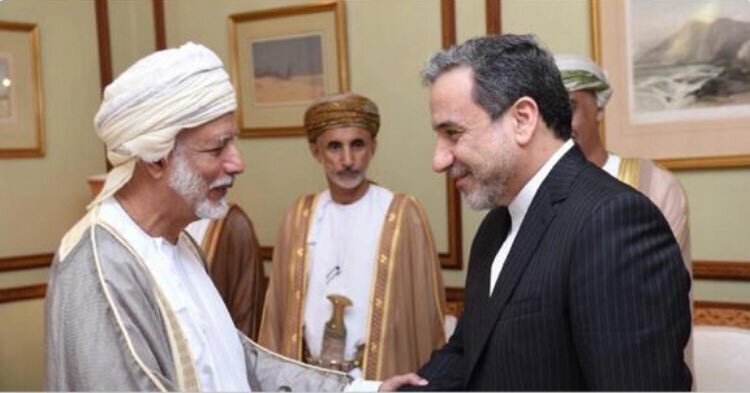Iran rejects talks with U.S., says ready to negotiate with Persian Gulf states

TEHRAN - Iranian Deputy Foreign Minister Abbas Araghchi on Sunday rejected any “direct or indirect” talks with the United States, however, he offered that Tehran is ready to negotiate with “each and every country” in the Persian Gulf region.
“Just visited Oman, will go to Kuwait & Qatar next: No direct/indirect talk with US, but ready to negotiate with each and every country in the Persian Gulf for a balanced & constructive relations based on mutual respect & interests,” he tweeted on Sunday.
Araghchi was in Muscat on Sunday. He met with Omani Foreign Minister Yusuf bin Alawi bin Abdullah.
During the meeting, Araghchi rejected recent claims about the start of talks between Iran and the U.S. for reducing tensions between the two sides.
“The Islamic Republic of Iran is ready to establish balanced and constructive relations with all countries in the Persian Gulf region based on mutual respect and interests,” Araqchi told the Omani chief diplomat.
He noted that Iran is not seeking to provoke tension in the region.
Tension has been rising between Iran and the U.S. since the Pentagon sent the USS Abraham Lincoln carrier strike group and a bomber task force to the Persian Gulf and made military threats against Iran.
The USS Arlington transports marines, amphibious vehicles, and rotary aircraft, as well as the Patriot missiles, are planned to join the carrier strike group.
Also, U.S. President Donald Trump announced on Friday that he would send about 1,500 troops to the Middle East.
Araghchi suggested that peace and stability in the region can be guaranteed if the sanctions on Iran are lifted and all regional countries enjoy benefits of economic cooperation.
He added, “Imposition of sanctions against Iran is a defeated policy which had been tested for many times.”
Last November, the U.S. enforced sanctions targeting the Islamic Republic’s banking and energy sector. However, it granted waivers to eight countries, including Japan, to continue buying Iranian oil without facing U.S. sanctions.
The White House, however, said in a statement issued on April 22 that the U.S. president decided not to renew the waivers for the eight major buyers of Iranian oil.
NA/PA
